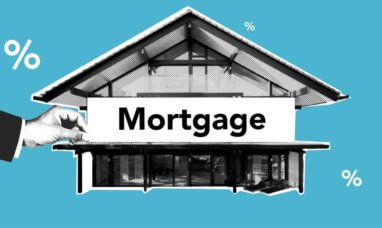A mortgage is a financial commitment that lasts several years. However, you don’t have to stick with the same mortgage deal to the end. It’s a good idea to reevaluate your mortgage every so often and see if you can find better deals or cheaper rates. If you find a better mortgage, you can switch to it—this is remortgaging. Follow below for a simple guide to remortgaging.
Remortgaging involves moving to a new mortgage deal to replace your current one. You can remortgage with your current lender or switch to a new one altogether. Remortgaging allows you to negotiate for better interest rates and terms.
Can you remortgage to release equity? Yes. You can increase the amount you owe on a mortgage to release some equity and get the cash. This is also referred to as refinancing.
When Should I Remortgage?
The decision to remortgage is usually a wise one. If you are deciding between a remortgage or second mortgage, remortgaging is definitely a better option if you already own the home. Refinancing will also be easier if you have built up substantial equity.
However, remortgaging is not always a smart move, especially if you are refinancing to tap the equity in your home or consolidate debt. You may end up increasing the term of your mortgage, extending the debt.
Remortgaging should be done to improve your financial situation in some way. The following are some of the reasons that you may want to remortgage:
1. To Take Advantage of Low Interest Rates
It’s essential to shop around with other lenders for suitable remortgage leads. You can also negotiate for better interest rates with your current lender. The rule of thumb is that you should reduce your interest rate by at least 1% to save money.
You can remortgage when interest rates have fallen to take advantage of a better deal. With lower interest rates, you can shorten your loan term. For example, you can move from a 20-year to a 12-year fixed-rate mortgage without increasing your monthly payments as much as you otherwise would.
You can also remortgage if you are concerned that mortgage rates are rising. You can move to a fixed-rate mortgage to lock into the current rates before they increase.
2. To Cash-in Some of Your Property’s Equity
You can remortgage to raise money. The amount can be up to a certain percentage of your home’s value. You can use these funds to buy a second home, pay for renovations, or do any number of things.
3. To Move to a Deal with Greater Certainty
Your current financial situation may require you to remortgage. You may want to remortgage to a longer fixed-interest period as compared to your current. Alternatively, you may remortgage to a shorter fixed-rate period to make overpayments.
4. When the Existing Mortgage Deal Is up for Renewal
Years into the mortgage term, interests revert to the lender’s standard variable rate (SVR), which is a default interest rate set by your lender. Homeowners usually look to remortgage as they near the end of the lender’s discounted period. At the end of the discounted period, the SVR rises and increases the monthly repayments.
When Might It Be the Wrong Time to Remortgage?
There are strict rules that lenders follow when remortgaging. Lenders will analyze your finances to decide if you can afford a mortgage before approving you for a refinance. You may have difficulty refinancing if:
-
-
- Your income has fallen since the last mortgage application
- Your credit score has dropped
- Your property value has decreased
-
Basically, if you are in worse financial standing than when you took out your original mortgage, you may not be approved for a new mortgage. Or, you may not be able to find the same or lower rates as your current mortgage.
Another factor that lenders consider before remortgaging is your age. Lenders are unwilling to extend mortgage terms for older borrowers. If they do accept a refinance from an older borrower, lenders may insist on a higher repayment to clear the debt before retirement.
How Does Remortgaging Work?
There are two different ways that your remortgage can work:
-
-
- You stick with the same lender. Your current lender can give you a new deal with a cheaper interest rate. What changes are your monthly payments.
- You switch providers. Your new lender gives you different mortgage terms or interest rates. Your new lender will settle your existing mortgage and transfer over your debt.
-
Switching lenders requires more work, and there are extra fees involved. It is, therefore, prudent that you first check if your current provider can give you a more competitive deal.
How Do I Remortgage?
Whether you are switching providers or staying with your current one, the following is the procedure for remortgaging:
-
-
- Get your recent financial information, including:
-
-
-
-
-
-
- Proof of income (payslips for the last three months, or, if you’re self-employed, your last few years’ tax returns)
- Bank statements for the previous three months
- Proof of income and tax paid
-
-
-
-
If this is a joint remortgage, you will need the above information for both parties.
2. Find out the remortgage deals you are eligible for. Affordability depends on the proportion of your property’s value that the mortgage represents—the more your home equity, the less your remortgage cost.
3. Once you find the best remortgage deal, put in your application
4. The lender, once satisfied, will complete the remortgage, and you start making repayments.
Other Considerations
How Long Does It Take to Remortgage?
The remortgaging process can go on for months. Consider your options at least three months before the expiry of your current deal.
How Much Does It Cost to Remortgage?
The main cost of remortgaging depends on the set interest rate. However, there are other fees that your lender may charge. It is vital that you ask about them before applying. Some of the costs involved in remortgaging include:
-
-
-
- Arrangement fees
- Legal fees
- Administrative fees
- Early repayment fees. This fee applies if you leave your current lender or deal before the expiry of the agreement.
- Exit fees
-
-
Can I Remortgage Early?
Yes, you can remortgage early. However, this move will attract a penalty in the form of an early repayment fee. This fee applies when your current mortgage is still in the initial discount period. The early repayment fee can be a significant amount. Before you decide to remortgage, find out if this charge applies and how much it will cost you. You also need to find out when your discount period ends. From this information, you will know whether it is the right decision to remortgage early or wait.
Can I Remortgage with Bad Credit?
Check your credit score before applying for a remortgage. If your credit score is bad, improve it first. To improve your credit score, clear any debts you may have or at least make your payments on time. A bad credit score will limit your remortgaging options. You may even struggle to find one. And when you do, you may have to pay more interest and applicable fees. A good credit score, on the other hand, makes it easy to find good remortgage deals.
Final Thoughts
Before you decide to remortgage, you may need to consider:
-
-
-
- The new interest rate. It would be wise to refinance when you can get an interest rate at least 1% lower than your current rate. But be aware of lenders who offer too good to be true offers and into mortgage refinance scams.
- The time you intend to stay in the home. Consider staying in the house long enough to recover your remortgaging costs.
- Closing costs involved. The aim of remortgaging is to get a better deal or interest. Remortgaging costs shouldn’t be so much that they negate any savings that you gain.
-
-
Featured Image: Twenty20






